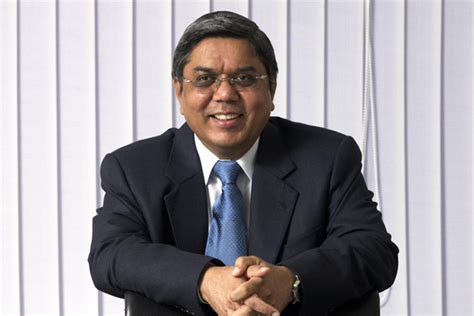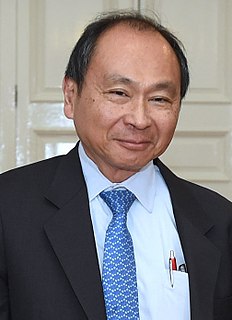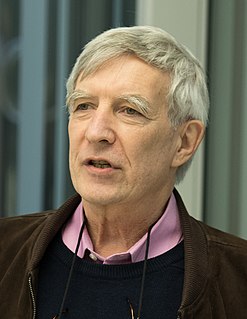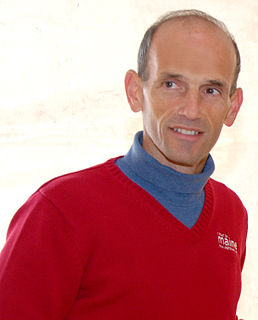A Quote by Tulsi Tanti
It is through technological innovation and the pursuit of sustainable social, economic, and ecological development that we can chart the country's path to progress and power a greener tomorrow.
Related Quotes
What Asia's postwar economic miracle demonstrates is that
capitalism is a path toward economic development that is potentially
available to all countries. No underdeveloped country in the
Third World is disadvantaged simply because it began the growth
process later than Europe, nor are the established industrial powers
capable of blocking the development of a latecomer, provided
that country plays by the rules of economic liberalism.
You can't just stop technological progress. Even if one country stops researching artificial intelligence, some other countries will continue to do it. The real question is what to do with the technology. You can use exactly the same technology for very different social and political purposes. So I think people shouldn't be focused on the question of how to stop technological progress because this is impossible. Instead the question should be what kind of usage to make of the new technology. And here we still have quite a lot of power to influence the direction it's taking.
Economic progress means the discovery and application of better ways of doing things to satisfy our wants. The piping of water to a household that previously dragged it from a well, the growing of two blades of grass where one grew before, the development of a power loom that enables one man to weave ten times as much as he could before, the use of steam power and electric power instead of horse or human power - all these things clearly represent economic progress.
The paramount doctrine of the economic and technological euphoria of recent decades has been that everything depends on innovation. It was understood as desirable, and even necessary, that we should go on and on from one technological innovation to the next, which would cause the economy to "grow" and make everything better and better. This of course implied at every point a hatred of the past, of all things inherited and free. All things superceded in our progress of innovations, whatever their value might have been, were discounted as of no value at all.
Humanity today is rightly concerned about the ecological balance of tomorrow. It is important for assessments in this regard to be carried out prudently, in dialogue with experts and people of wisdom, uninhibited by ideological pressure to draw hasty conclusions, and above all with the aim of reaching agreement on a model of sustainable development capable of ensuring the well-being of all while respecting environmental balances.



































